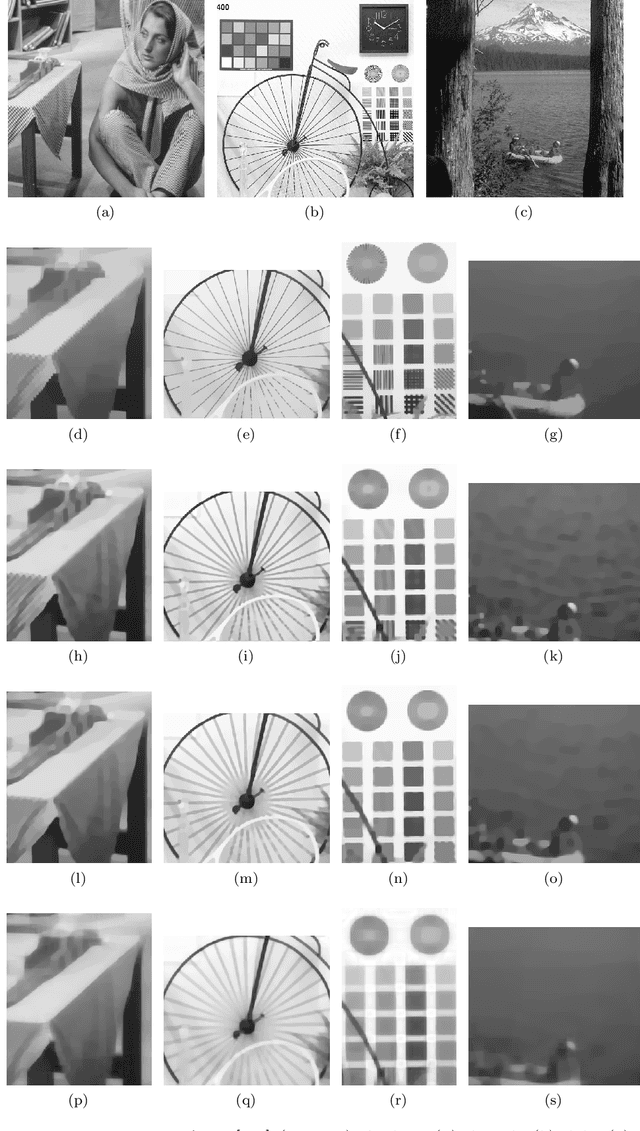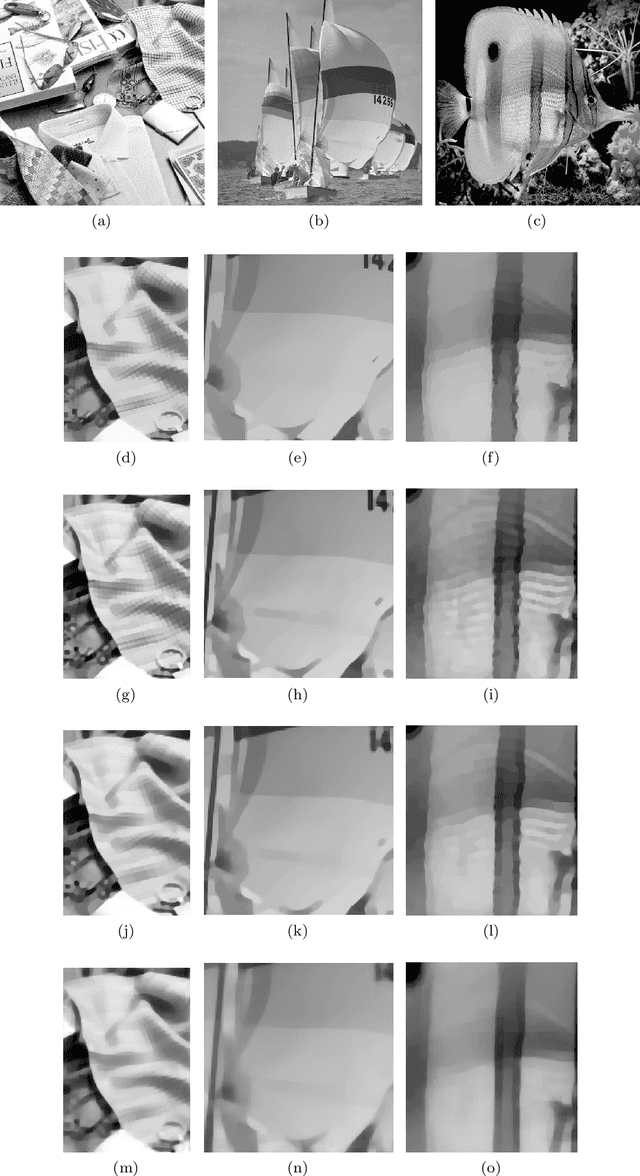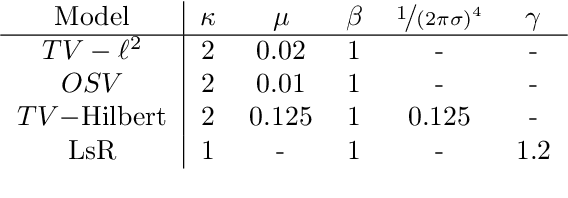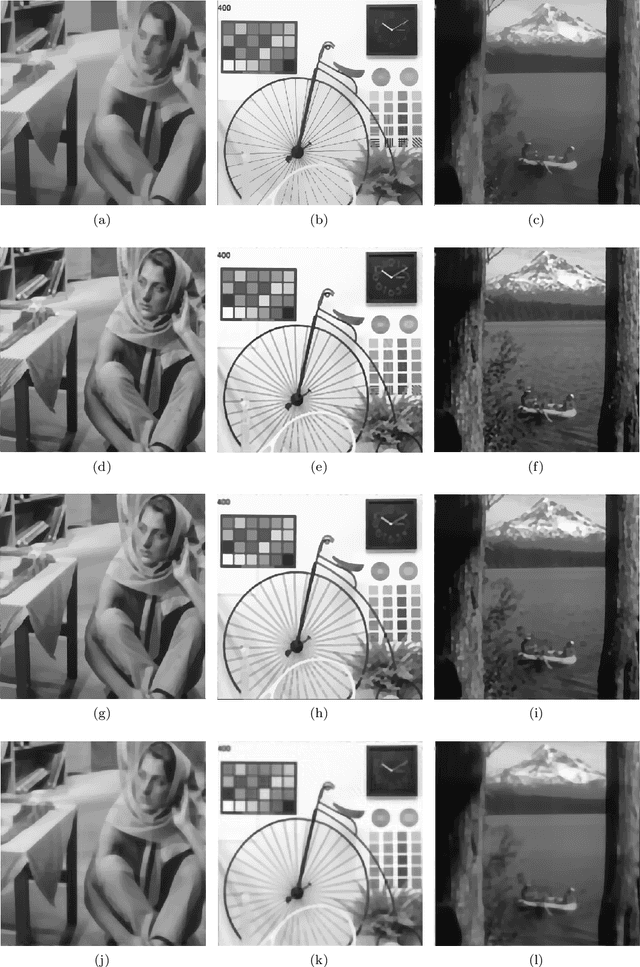Generalized Intersection Algorithms with Fixpoints for Image Decomposition Learning
Paper and Code
Oct 16, 2020



In image processing, classical methods minimize a suitable functional that balances between computational feasibility (convexity of the functional is ideal) and suitable penalties reflecting the desired image decomposition. The fact that algorithms derived from such minimization problems can be used to construct (deep) learning architectures has spurred the development of algorithms that can be trained for a specifically desired image decomposition, e.g. into cartoon and texture. While many such methods are very successful, theoretical guarantees are only scarcely available. To this end, in this contribution, we formalize a general class of intersection point problems encompassing a wide range of (learned) image decomposition models, and we give an existence result for a large subclass of such problems, i.e. giving the existence of a fixpoint of the corresponding algorithm. This class generalizes classical model-based variational problems, such as the TV-l2 -model or the more general TV-Hilbert model. To illustrate the potential for learned algorithms, novel (non learned) choices within our class show comparable results in denoising and texture removal.
 Add to Chrome
Add to Chrome Add to Firefox
Add to Firefox Add to Edge
Add to Edge